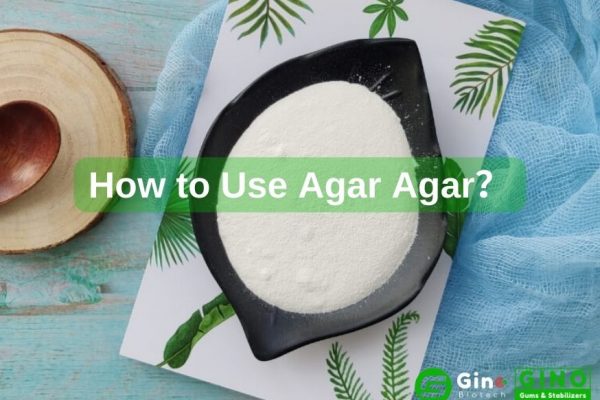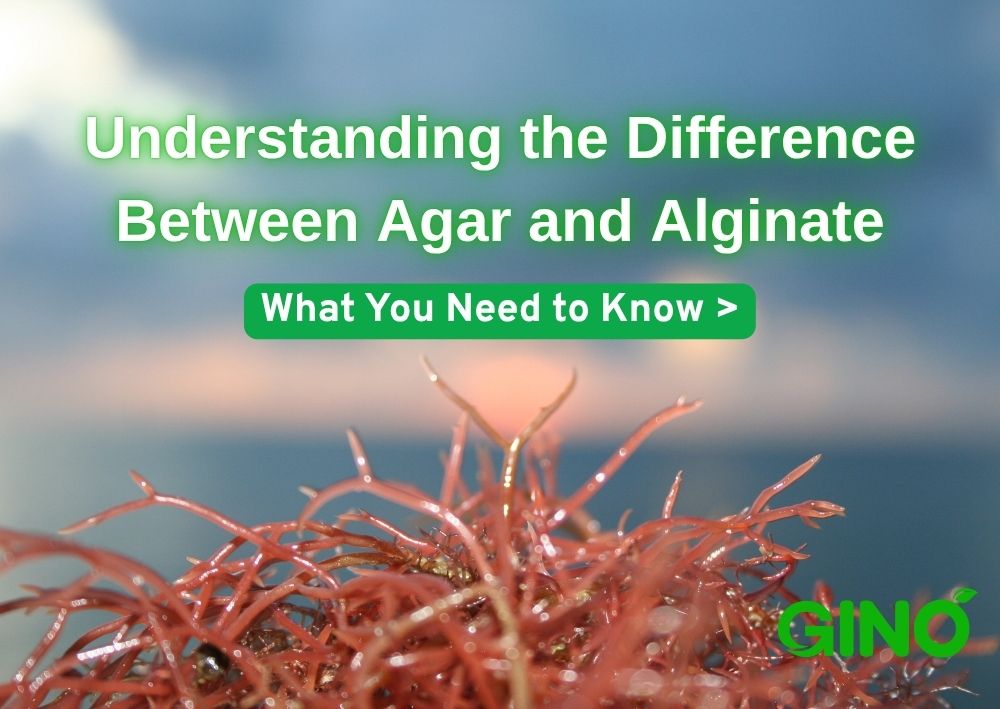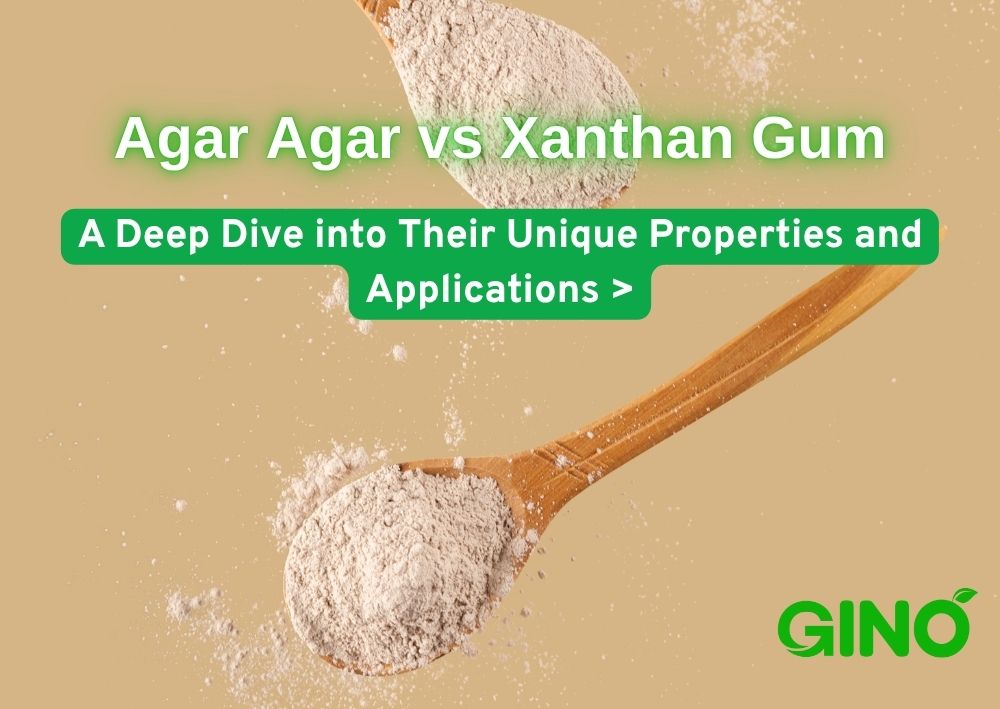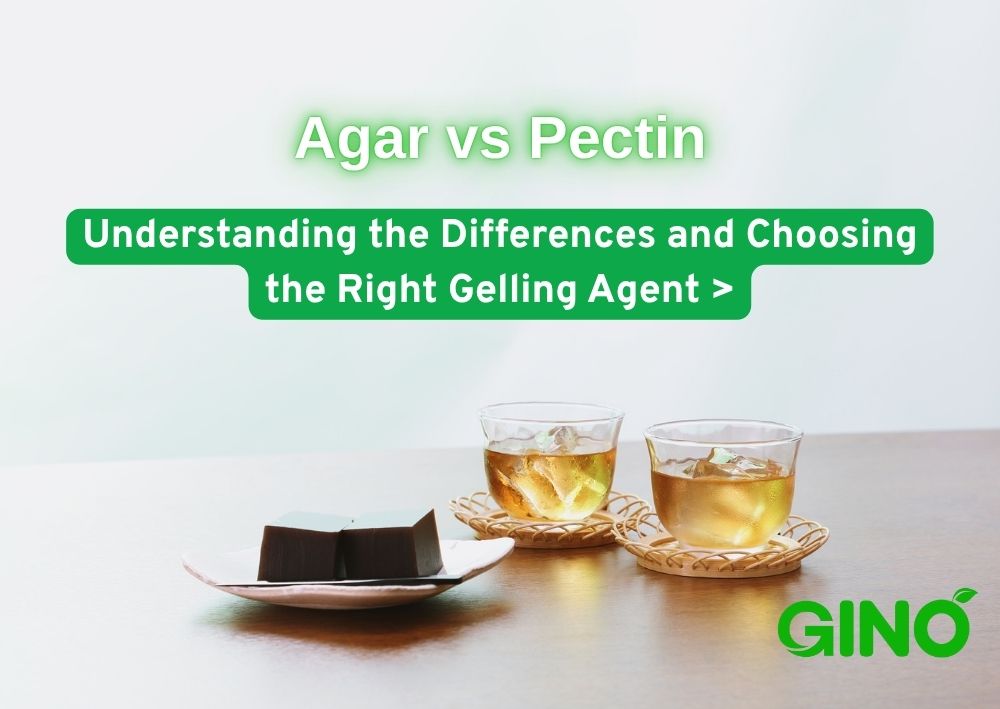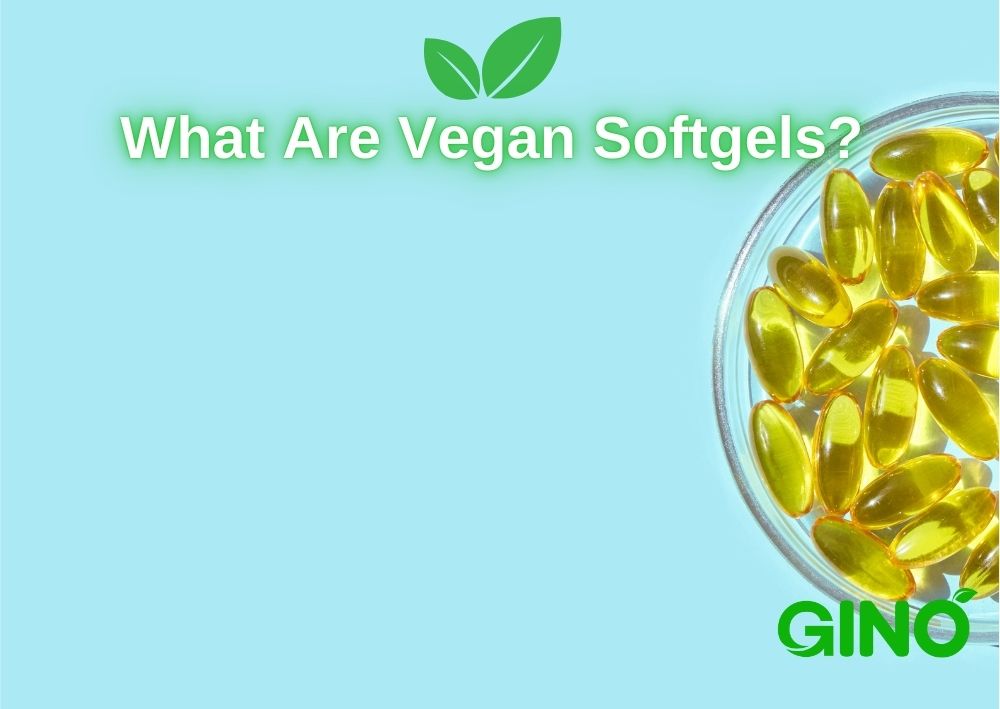Exploring the Types of Agars: From Raw Materials to Applications
Exploring the Types of Agars
1. Introduction
When it comes to hydrocolloids, agar is a versatile, plant-based powerhouse used in everything from food production to microbiology. But did you know that agar comes in many forms? Whether you're selecting agar for culinary creations, scientific research, or industrial applications, understanding the types of agars can make all the difference.
This article will guide you through the classifications of agar, from raw material sources like 江蓠菜 (Gracilaria) and 石花菜 (Eucheuma) to different strengths and applications. By the end, you'll have a clear understanding of how to choose the right agar for your needs.
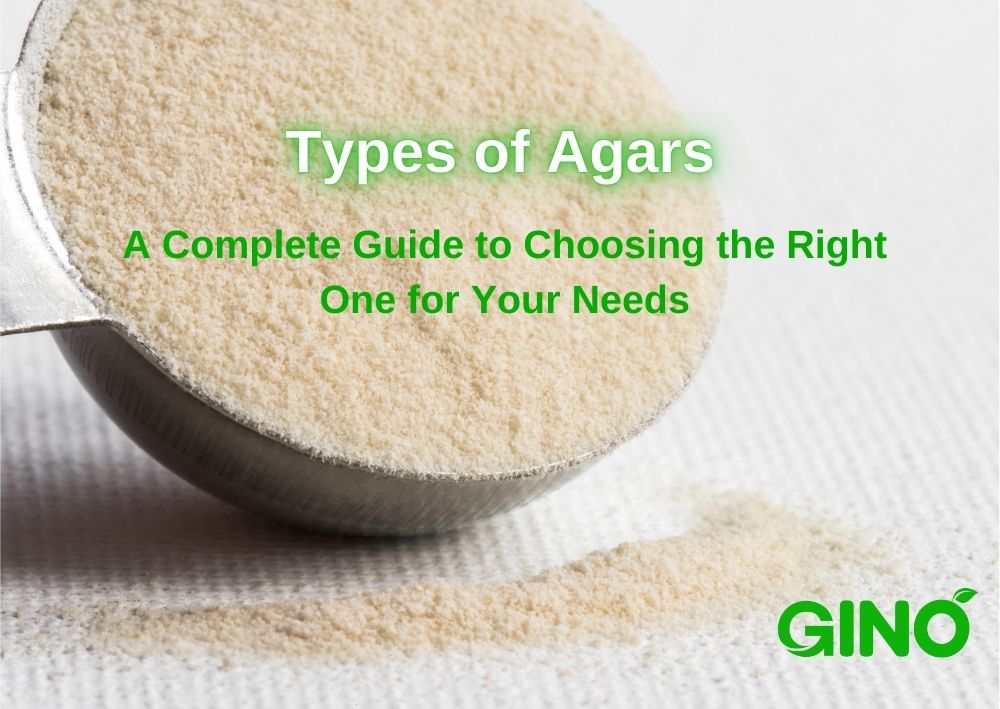
2. Types of Agars Based on Raw Materials
1. 江蓠菜 Agar (Gracilaria Agar)
Derived from the Gracilaria species, 江蓠菜 agar is one of the most widely used types, prized for its smooth texture and reliable gelling properties.
- Key Features:
- Produces a firm, transparent gel
- Suitable for various food applications
- Common Uses:
- Food: Jellies, desserts, and vegetarian gelling agents
- Industrial: Basic thickening applications
2. 石花菜 Agar (Eucheuma Agar)
Extracted from Eucheuma algae, 石花菜 agar stands out for its high gel strength and clarity.
- Key Features:
- Higher gel strength than Gracilaria agar
- Creates clear, sturdy gels
- Common Uses:
- Microbiology: Agar plates for culturing
- High-end food applications
3. Types of Agars Based on Physical Form
1. Agar Powder
A highly refined form of agar, powder is easy to measure and mix, making it popular for culinary and laboratory use.
- Benefits: Convenient to use, dissolves quickly.
- Applications: Baking, microbiology, and beverage thickening.
2. Agar Strips and Bars
These traditional forms are less processed, offering a natural alternative. While slower to dissolve, they’re valued for their authenticity in artisanal recipes.
- Applications: Confectionery, classic Asian desserts.
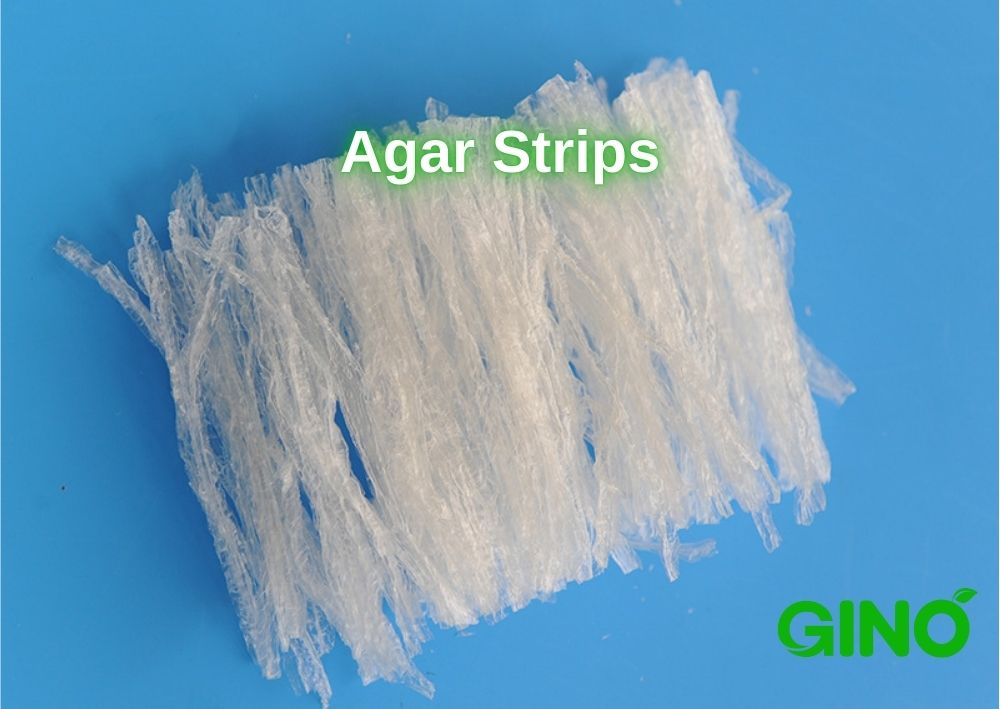
4. Types of Agars Based on Gelling Speed
1. Standard Agar
This type requires boiling to dissolve fully, followed by cooling to form a gel.
- Applications: Traditional recipes and microbiology.
2. Instant Agar (Quick-Dissolving Agar)
Designed for modern convenience, instant agar dissolves faster and gels more quickly, saving time without compromising quality.
- Applications: Quick food production and home cooking.
5. Types of Agars Based on Application
1. Food-Grade Agar
A pure, high-quality agar for culinary use, meeting stringent food safety standards.
- Uses: Desserts, jellies, sauces, and dairy products.
2. Microbiological Agar
Specially prepared for culturing bacteria and fungi in laboratory settings.
- Uses: Research and diagnostics.
3. Bacteriological Agar
With even higher purity standards, this agar is ideal for critical microbiological studies.
- Uses: Pharmaceutical and clinical research.
4. Plant Tissue Culture Agar
This type supports plant tissue growth in research and agriculture.
- Uses :Propagating plants and studying tissue regeneration.
6. Types of Agars Based on Gel Strength
1. High-Strength Agar
Known for its firm gels, high-strength agar is essential in applications requiring stability and durability.
- Uses: Microbiology and industrial processing.
2. Medium-Strength Agar
Balances gel firmness and flexibility, suitable for general use.
- Uses: Food products like custards and mousses.
3. Low-Strength Agar
With softer gels, low-strength agar is ideal for delicate applications.
- Uses: Creamy desserts and soft-textured foods.
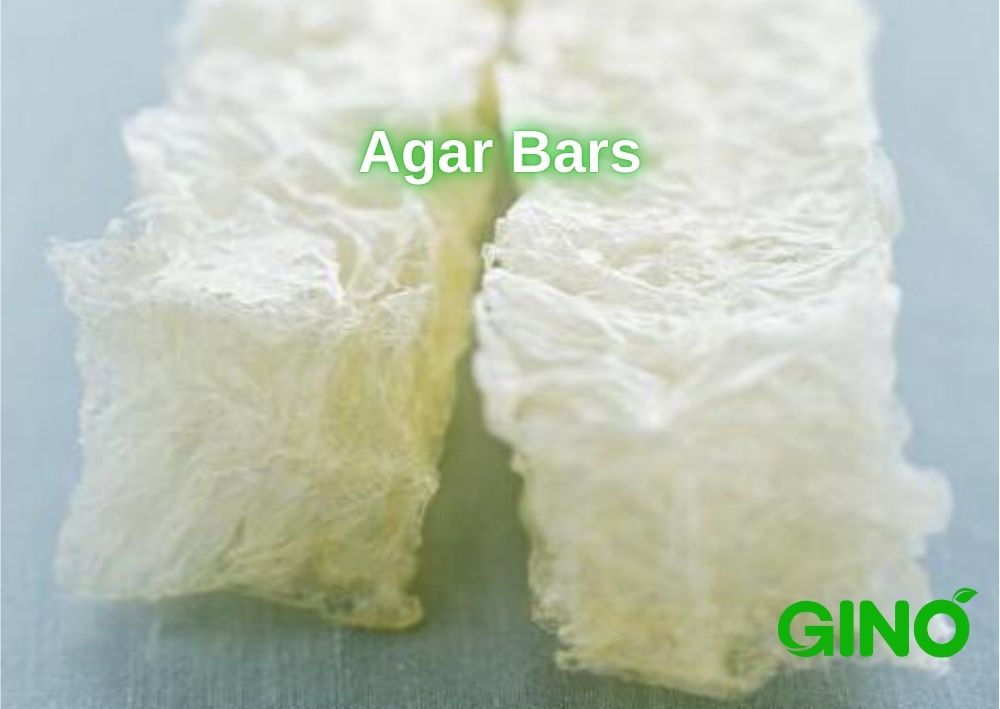
5. Conclusion
Whether you're in the food industry or the lab, understanding the types of agars can streamline your choice and improve your results. From raw material origins like 江蓠菜 and 石花菜 to variations in strength, speed, and application, each agar type has unique advantages. By selecting the right type, you ensure the best outcome for your specific needs.
Looking for high-quality agar products?
At Gino, we offer a wide range of agars, from food-grade to bacteriological options, in customizable forms and packaging. Contact us today to find the perfect agar solution for your application!
Contact Our teamRecent Posts

We are a biotech company specializing in the research, development, and commercialization of innovative and technological food additives hydrocolloids Agar Agar, Carrageenan, and Tailor-Made Stabilizer Solutions.
With the extended know-how and experience in the research, application, and use of Hydrocolloids, we could provide one-stop-shop customized solutions perfectly matched to the needs of our customers.
Our products cover the needs of the Meat, Dairy, Bakery, Confectionery, and other industrial sectors.


